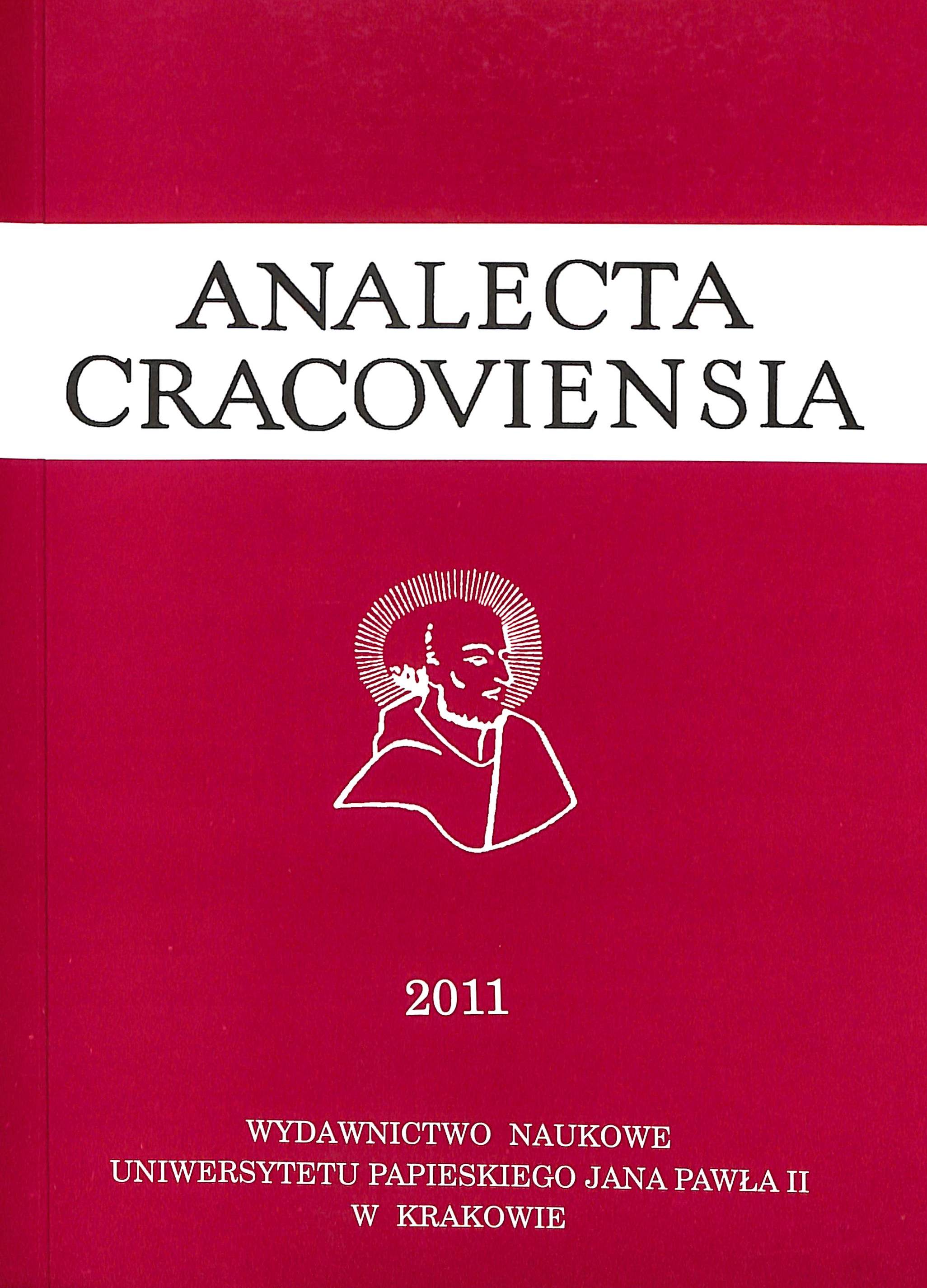The Genesis of the Evolution of Saint Józef Bilczewski’s Scientific Interests During His Studies at the Faculty of Theology of the Jagiellonian University (1880-1884)
DOI:
https://doi.org/10.15633/acr.4319Keywords:
Józef Bilczewski, Wydział Teologiczny Uniwersytetu Jagiellońskiego (XIX wiek), studia teologiczne, profesorowie teologii, biografiaAbstract
In this article I described the origins of the evolution of Józef Bilczewski’s scientific interests (1880-1884). The effect of the study, firmly established by the analysis of the source material, was the answer to the question: who and to what extent influenced the choice of interests of the young student of theology? Reflections show that at the first stage of the evolution of his scientific interests three great researchers working at the Jagiellonian University significantly influenced him: S. Pawlicki (philosopher, theologian, classic), W. Chotkowski (Church historian), W. Lepkowski (art historian, archaeologist) and perhaps also E. Skrochowski (historian of Christian art). They turned J. Bilczewski’s attention to the tradition of classic Christianity culture at the time and directed his interest towards dogmatics. Other scientists also influenced the formation of the young clergyman; at least a few priest professors can be named here: J. S. Pelczar (history of the Church and patrology, pastoral theology), Zygmunt Lenkiewicz (moral theology), Stanisław Spis and Emil Lamboy (Scripture of the Old and New Testaments). However, it can be said with confidence that it was: S. Pawlicki, W. Chotkowski and W. Lepkowski who were responsible for the dogmatic-apologetic-antique fascinations of J. Bilczewski.
Downloads
Published
Issue
Section
License
Copyright (c) 2011 Józef Cezary Kałużny

This work is licensed under a Creative Commons Attribution 4.0 International License.
Authors who publish with this journal agree to the following terms:
- Authors retain the copyright and full publishing rights without restrictions, and grant the journal right of first publication with the work simultaneously licensed under a Creative Commons Attribution 4.0 International License that allows others to share the work with an acknowledgement of the work's authorship and initial publication in this journal.
- Authors are able to enter into separate, additional contractual arrangements for the non-exclusive distribution of the journal's published version of the work (e.g., post it to an institutional repository or publish it in a book), with an acknowledgement of its initial publication in this journal.
- Authors are permitted and encouraged to post their work online (e.g., in institutional repositories or on their website) prior to and during the submission process, as it can lead to productive exchanges, as well as earlier and greater citation of published work (See The Effect of Open Access).

